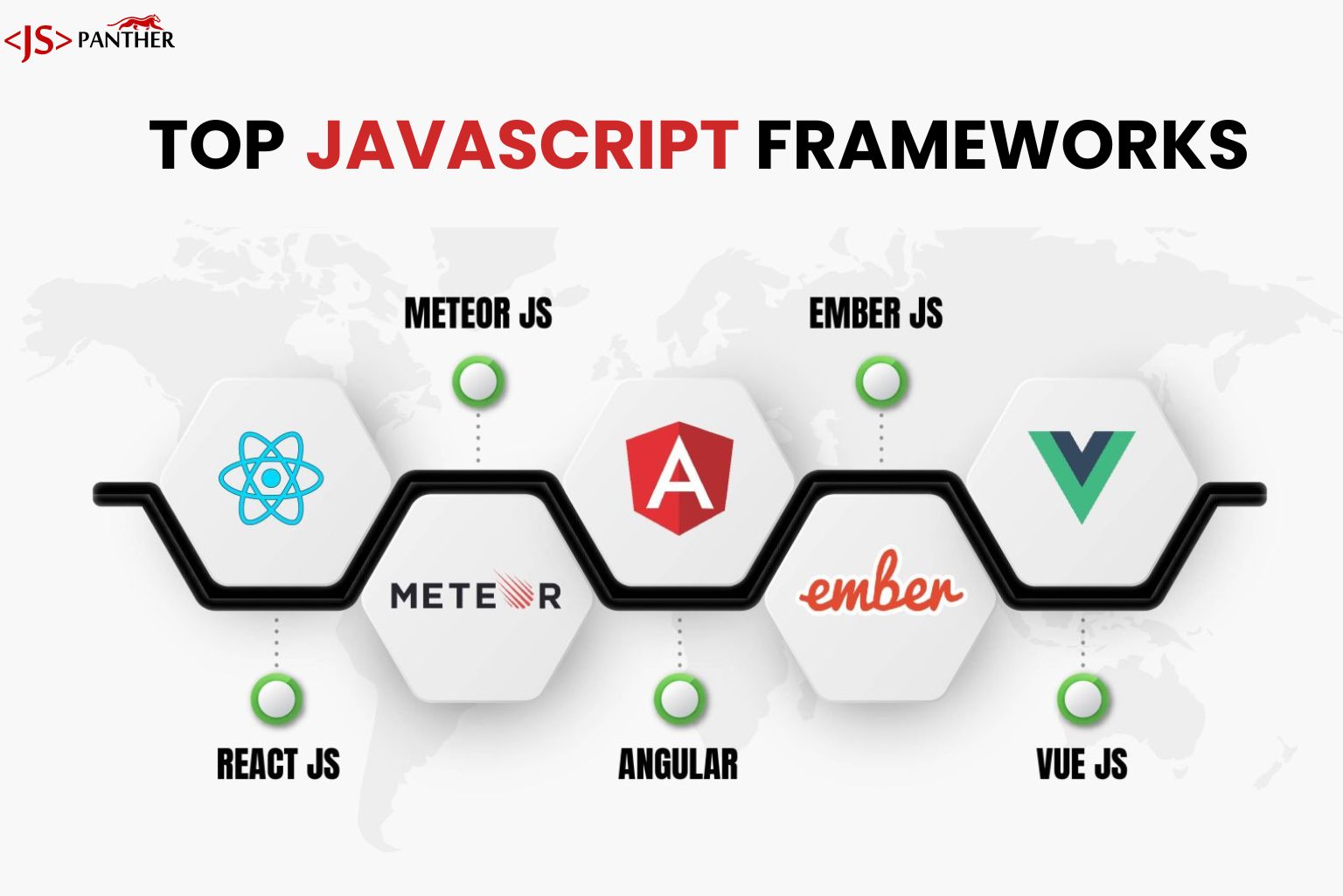Viva Resa: Your Gateway to Insightful Living
Discover news, trends, and tips for a vibrant lifestyle.
Framework Follies: The JavaScript Showdown
Dive into the wild world of JavaScript frameworks! Discover battles, insights, and surprises in Framework Follies: The JavaScript Showdown.
Exploring the Top JavaScript Frameworks: A Comprehensive Guide
JavaScript frameworks have revolutionized the way developers build web applications, providing tools that streamline the development process and enhance overall user experience. In this comprehensive guide, we will explore the top JavaScript frameworks available today, focusing on their features, advantages, and ideal use cases. Popular frameworks such as React, Angular, and Vue.js have gained traction due to their robustness. Understanding these tools is crucial for any developer looking to stay competitive in the ever-evolving landscape of web development.
1. React: Maintained by Facebook, React allows developers to build dynamic user interfaces with reusable UI components. Its virtual DOM feature optimizes rendering processes, making applications faster.
2. Angular: A comprehensive framework developed by Google, Angular is ideal for building complex applications. It offers two-way data binding and extensive support for testing, making it a favorite among enterprise-level projects.
3. Vue.js: Known for its ease of use, Vue.js is perfect for beginners. It provides a flexible architecture allowing developers to integrate it into existing projects seamlessly.
Every framework has its strengths and weaknesses, and this guide will help you determine which one suits your project best. For deeper insights into these frameworks, visit FreeCodeCamp.

Battle of the Frameworks: React vs. Vue vs. Angular
In the battle of the frameworks, React, Vue, and Angular each present unique advantages and shortcomings, influencing developers' choices based on project requirements. React, a library maintained by Facebook, is known for its flexibility and component-based architecture, which promotes ease of reuse and rapid development. Vue, on the other hand, is celebrated for its gentle learning curve and progressive framework, making it appealing for both newcomers and experienced developers. Lastly, Angular, developed by Google, offers a comprehensive solution with powerful features like dependency injection and a robust ecosystem, but may present a steeper learning curve due to its complexity.
When considering which framework to use, it's essential to evaluate your project's specific needs. For example, if performance and SEO are critical, React's server-side rendering capabilities can be advantageous. Vue excels in building small to medium-sized applications efficiently due to its simple integration and flexibility. Conversely, Angular is well-suited for large-scale enterprise applications requiring a full-fledged framework with all the built-in tools. Ultimately, the React vs Vue vs Angular discourse continues to evolve, shaped by community feedback and updates, making it imperative to stay informed. To dive deeper into these technologies, check out resources such as Tania Rascia's comparison or FreeCodeCamp's in-depth analysis.
What Are the Pros and Cons of JavaScript Frameworks?
JavaScript frameworks offer a range of advantages that can significantly enhance the development process. One of the primary benefits is improved efficiency. Frameworks like React, Angular, and Vue.js provide pre-written code for common functionalities, allowing developers to build applications faster and with fewer errors. Additionally, these frameworks typically come with robust community support and documentation, which makes it easier for developers to find solutions to problems. According to SitePoint, JavaScript frameworks also promote consistency in code, encouraging best practices and making it easier for teams to collaborate on projects.
Despite their advantages, there are also drawbacks to using JavaScript frameworks. One major concern is performance overhead, as these frameworks often include many features that may not be necessary for all projects. This can lead to larger file sizes and longer loading times, affecting user experience. Furthermore, switching frameworks can pose challenges, as each has its own set of rules and conventions. As highlighted by Smashing Magazine, the rapid evolution of frameworks may also lead to issues with keeping up-to-date with the latest best practices and features, which can result in technical debt.